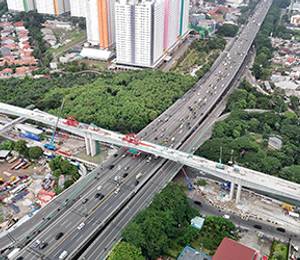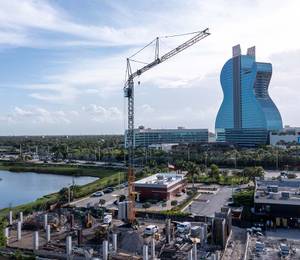Bentley Systems has unveiled new generative AI capabilities for civil site design, including a design copilot, site layout optimisations, and automated drawing production that will drive new levels of productivity and accuracy.
Building on its success in applying AI-powered digital twins to asset maintenance – to detect and assess problems before failures occur – Bentley is bringing AI to the design phase of the infrastructure lifecycle to automate repetitive tasks, such as drawing production, so that engineers can focus on higher-value activities.
Leveraging generative AI
OpenSite+ is Bentley’s first engineering application leveraging generative AI for civil site design. It helps engineers swiftly design residential, commercial and industrial sites with AI tools, significantly boosting productivity and accuracy.
A digital twin-native product, built with Bentley’s iTwin platform, OpenSite+ delivers AI-powered efficiencies and better-quality designs with:
A). Enhanced design experience with copilot
Users can quickly create, revise and interact with requirements documentation and 3D site models through natural language interactions – to automatically make real-time design changes with precision and ease.
B). Layout optimisation
Users can enhance efficiency, reduce errors and rework site designs in minutes with one-click earthwork optimisation. Bentley’s AI-powered design layout agent can evaluate thousands of layout options and suggest alternative designs in real-time, helping users make better design decisions sooner, saving time and money.
C). Automated drawing production
Users can reduce time spent on mundane drawing tasks, accelerating drawing production by up to 10 times, and improve drawing accuracy using AI-powered annotation, labelling and sheeting that automatically places labels and dimensions according to organisational standards that are optimised for legibility and aesthetics.
D). Smart design tools
Users can create and revise designs using intelligent, editable objects such as building pads, parking layouts, driveways, sidewalks and ponds to complete projects in a fraction of time compared to traditional CAD software.
With OpenSite+, users also maintain control over their proprietary data during AI training, which creates a solid foundation to responsibly guide the development of AI models.
“By leveraging their past data to optimise future work, generative AI will revolutionise infrastructure design, improving engineers’ productivity and accuracy without sacrificing on quality,” said Mike Campbell, chief product officer at Bentley Systems. “OpenSite+ is just the first example of how Bentley is applying generative AI to benefit infrastructure design and project delivery.”
OpenSite+ early adopter, Joe Viscuso, senior vice president and director of strategic growth at US engineering company Pennoni, commented, “OpenSite+ is a game-changer. By combining design and routine tasks into one powerful platform, it eliminates the need to switch between multiple programmes. It streamlines our workflow, automates repetitive tasks, and ensures accuracy as we make changes in real-time. This means faster project completion with superior results, helping Pennoni stay ahead of the curve in both technology and innovation.”
OpenSite+ is the first of a new generation of Bentley Open Applications which run on desktops for optimal responsiveness, while offering the benefits of cloud-based applications, such as automatic updates and cross-operating system availability. The iTwin-native architecture enables seamless collaboration and data-centric workflows. Data is saved directly in a digital twin, which in turn can include data from other sources to provide full context for design work.
According to Bentley, site engineering firms in North America are currently able to apply for early access.
All images: Bentley Systems













